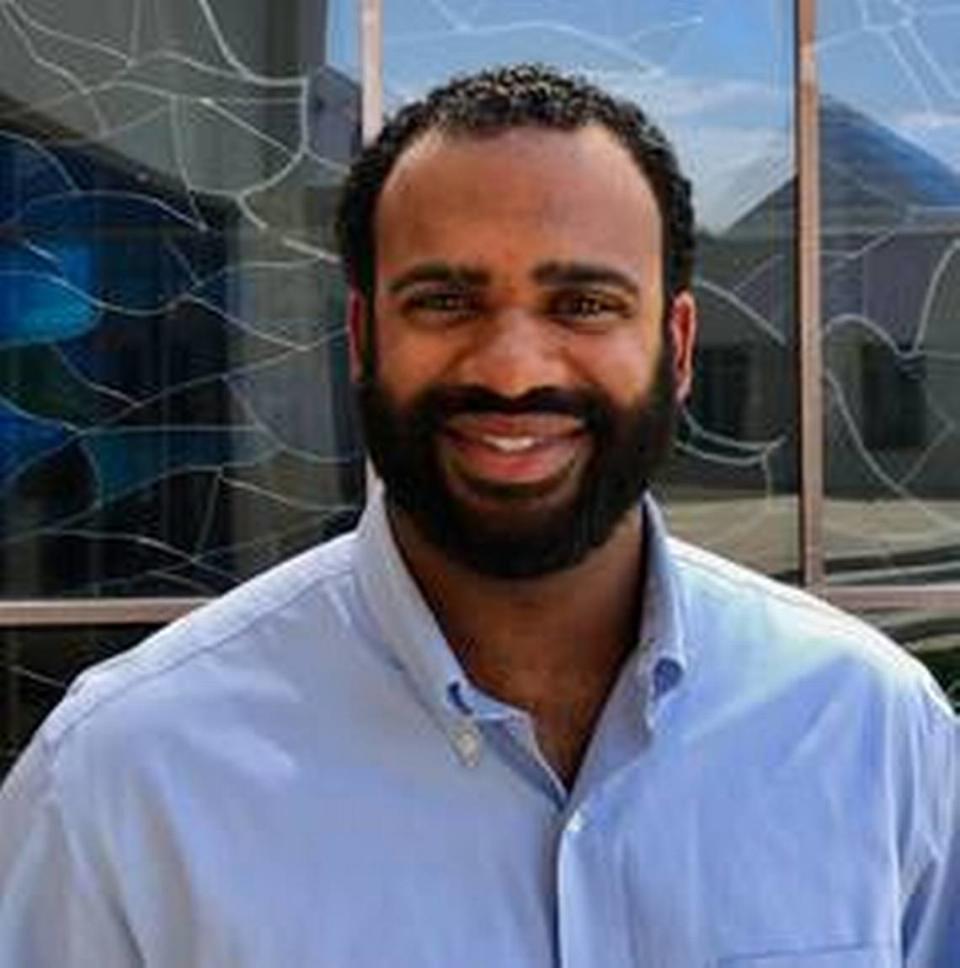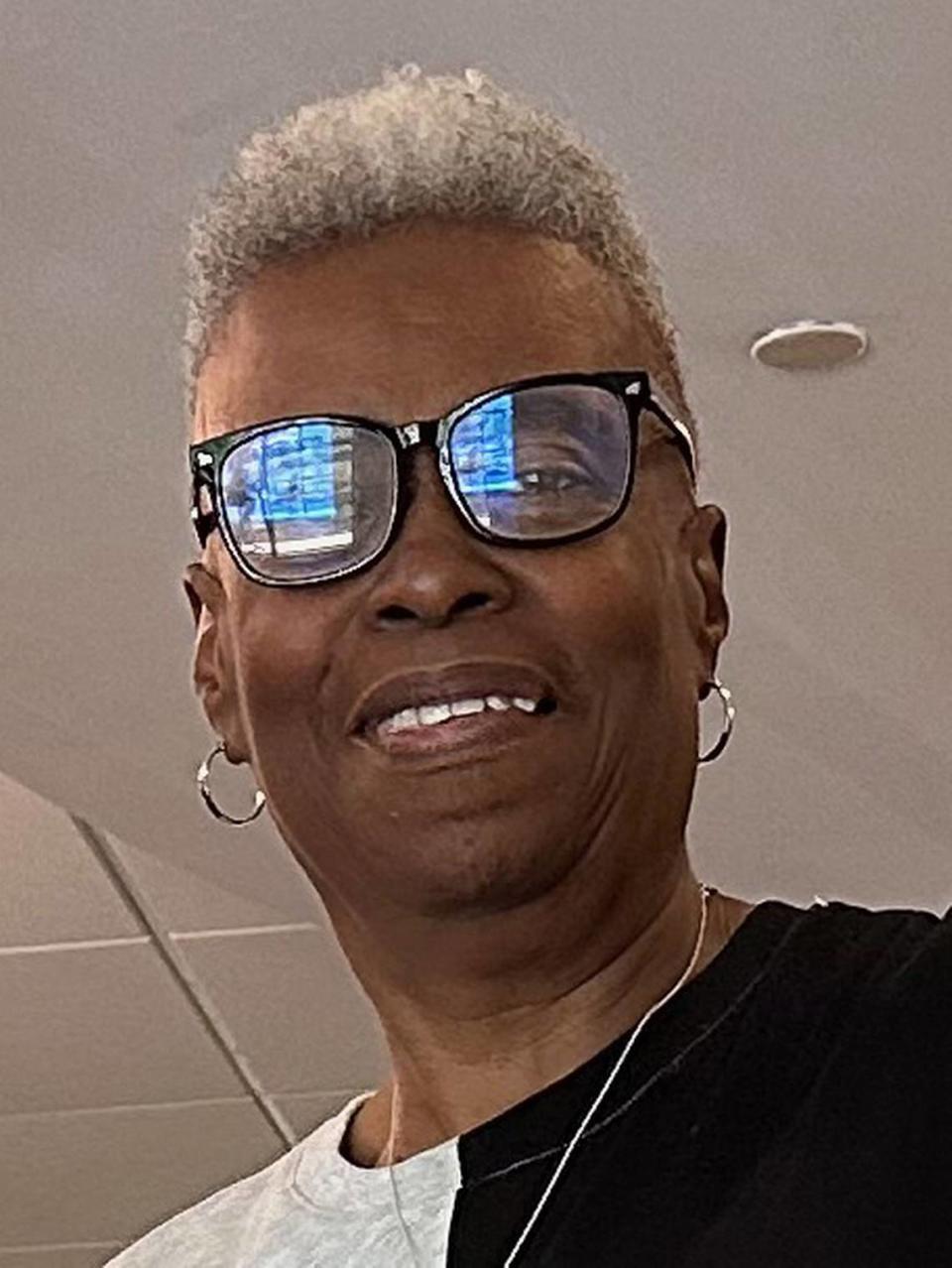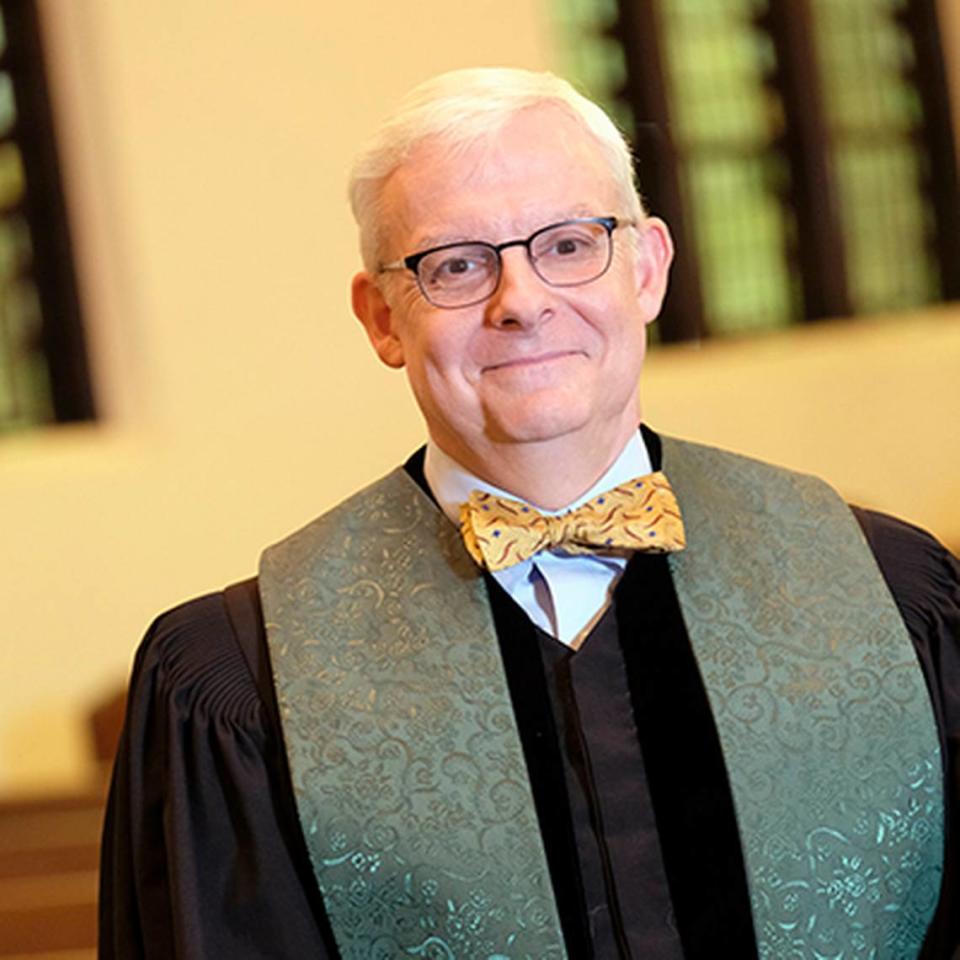Are Charlotte faith groups affirming LGBTQ? Spiritual leaders share ways to include.
The youth director at Temple Israel in Charlotte, Alan Johnathan, describes why many Jewish people are adding an orange to update their traditional Passover seder meal.
The seder plate includes at least five symbolic foods: bitter herbs (maror in Hebrew), for the bitterness of slavery; leafy greens (karpas), for spring and the hope of new growth; a mixture of apples, nuts and wine (haroset), for mortar; a roasted egg (beitzah), for the cycle of life; and a shankbone (zeroa), for the Passover offering at the temple in Jerusalem.
An orange (tapuz) symbolizes the marginalized and excluded, especially LGBTQ people, and the fruitful benefits of inclusion and community.
“The reason for that is to remember that some people don’t feel as connected to community,” Johnathan explained, “and we should be welcoming them and trying to find ways to get them to feel comfortable, to just be who they are, and to be Jewish.”
Despite splits in mainstream churches over issues of inclusion, conversations with leaders of Christian, Jewish and Muslim faith groups shine an optimistic light on progress in Charlotte. It suggests movement beyond mere acceptance and toward actual affirmation of LGBTQ communities.

Growth in the Black community
When she moved to Charlotte from Washington, D.C., in 1999, the Rev. Sonja Lee said there were no African-American-led churches that affirmed LGBTQ people. She had grown up in a Christian Methodist Episcopal congregation and visited several churches that didn’t feel like a good fit.
So she worked with local faith leaders and founded the Unity Fellowship Church.
“People just started coming in and we were like, wow, you know, it was happening,” she said. “And we have since served thousands of families in this area. We’ve actively been trailblazers and pioneers in that area, because now there are several affirming churches in the African-American community.” She listed the Movement Church on Village Lake Drive, St. Luke Missionary Baptist Church on Norris Avenue, and Sacred Souls Community Church on Eastway Drive.

Lee is a preacher, veteran of the U.S. Army, activist, and executive director of the Lionel Lee Jr. Center for Wellness, which supports the LGBTQ community and specifically Black transgender women.
“Religion and spirituality for me, there is an intersection,” Lee said. “But at some point, religion can be restrictive, and for certain people, they may have to work on their spirituality, which is their relationship with their higher power, their God as they understand God. It has shielded me from some religious dogma, knowing that God loves me, created me, loves me, just the way I am.
“There were some things that most of us, especially in Black communities, learned about their faith traditions in the community that are good,” Lee said. “The challenge is not to be caught up in dogma, especially if you identify outside of the mainstream, outside of the heterosexual norms. It is really critical to find affirming spaces.”
Evolution in mainstream Christian churches
Many Charlotte mainstream Christian churches are trying to answer a subtle but important question — How welcoming is welcoming? How do they move from welcoming to affirming?
Riley Murray, president of Charlotte Pride and a member of Caldwell Presbyterian Church, wasn’t conflicted about reconciling identity and faith.
“When I hear people have that struggle — I am not saying it is not real, because it is real,” Murray said. “But I didn’t grow up being told you were going to go to hell because of how you identify sexually.”
Murray first attended Metropolitan Community Church, the Charlotte’s first openly LGBTQ church, before joining Caldwell.

Caldwell was not always open and affirming, said the Rev. John Cleghorn, Caldwell’s head pastor. He said its journey toward affirmation began when the church was dying. The older congregation integrated with a group that was more diverse and inclusive.
“The distinction between being welcoming and affirming goes much deeper,” Cleghorn said. “It goes to empathy. It goes to a posture of listening and understanding all journeys and all the ways that God creates people. It requires some humility, especially for folks that have not spent a lot of time with the LGBTQ community.”
The Presbytery of Charlotte’s LGBTQ Ministry Team is working with 93 churches in Charlotte on their move toward affirmation. Lisa Raymaker serves on the team and said ‘affirming’ includes being allowed to be married, allowing leadership within the church, and sharing equal opportunity for voices to be heard.
“How do we not just welcome them like we should everyone? How do we include them in what we are trying to do here?” Raymaker asked. People shouldn’t feel as though they need to work to be affirmed. They should be affirmed before they walk through the church doors,” she said.
The Presbyterian team is working to reach churches through educational meetings conducted both online and in small groups, and by meeting directly with churches, their pastoral staff and lay leaders. The team started about one year ago, Raymaker said, and now feels a greater sense of urgency because of increases in anti-LGBTQ legislation.
The Rev. Dr. Suzanne Henderson, a Charlotte-based consultant with Interfaith America, lists several mainstream churches that are already well along the path, including Covenant Presbyterian, St. John’s Baptist, Myers Park Baptist, and Mayfield Memorial Baptist Church.
Exploring Islamic Belief
Hadia Mubarak, an Islamic scholar at Queens University of Charlotte and author of a recent book on evolving gender roles in the Muslim tradition, describes a modern interpretation of Islam which draws a distinction between scripture and inclusion.
“The scripture is what it is,” Mubarak said. “But the Islamic faith is all about not judging people and about welcoming people to worship.”
A Queens student, Owen Panos, recently explored Islamic views on LGBTQ communities and concluded that the positions of North American Muslims range from acceptance to dissent. Panos, who is transgender, described an explanation from Sherman Jackson, an Islamic scholar at the University of Southern California.
“Jackson says gay Muslims are still Muslims, and cannot be disqualified from the religion,” Panos said. An individual who commits adultery or drinks alcohol, for example, does not become an unbeliever. For example, the prophet Muhammad once dispelled followers from cursing a man who drank alcohol, which is against Islamic belief.
“This inclusion is powerful in its support for LGBTQ Muslims,” Panos said. “It says God the prophet Muhammad still loves and supports those who follow Islam regardless of their actions.” But Islam also makes distinctions.
“If homosexuals want to say, ‘I’m a homosexual and you must accept homosexual acts as being acceptable in Islam,’ I don’t see a place for that, any more than I see a place for ‘I am an adulterer and you must make a place for adultery in Islam,’” Jackson has said.
A rainbow in Jewish life
Johnathan, the youth minister at Temple Israel, explained that if you’re Jewish and LGBTQ, you can still get married in conservative and reform movements of Judaism. Charlotte’s Temple Beth El, in the reform movement, is more social action-facing, he said, and offers several groups and initiatives that directly address LGBTQ issues.
Johnathan explained that he and Temple Israel’s senior rabbi are part of the Keshet program, named after the Hebrew word for rainbow. Keshet works for the equality of all LGBTQ Jews and families in Jewish life.
“The way I look at it is – sometimes it’s already difficult to be Jewish,” Johnathan said. “Especially in the South, where there’s not as many of us. So there’s no need to make anyone feel any more excluded from normal life than necessary. If you are straight, LGBTQ, any of those things, it doesn’t necessarily matter to us. Because we’re just happy you’re here and you’re Jewish, and you’re celebrating that with us.”
Palmer Magri, JJ Jones and Eleanor Williamson are students in the James L. Knight School of Communication at Queens University of Charlotte, which provides the news service in support of community news.

